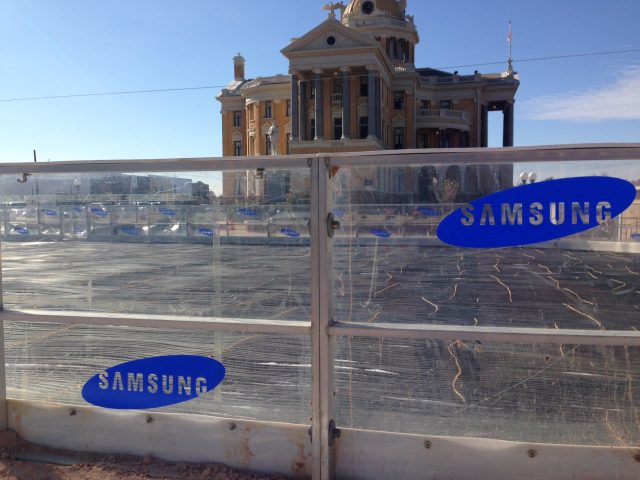
Patent reform advocates who were hoping to "shut down the Eastern District of Texas" face disappointment today, as the top US patent appeals court ruled (PDF) against a venue transfer in a dispute between two food companies.
Tech companies and patent reform advocates have been complaining that they don't get a fair shake in East Texas, a rural district that's been a hotspot for patent litigation for more than a decade now. The case decided today, In re: TC Heartland, doesn't directly involve tech companies or East Texas, but it could have had a big effect on both.
The lawsuit began when Kraft Foods accused rival food company TC Heartland of infringing its patents on "liquid water enhancers." Heartland's defense lawyers asked to move the case from Delaware to TC Heartland's home state of Indiana, but a Delaware magistrate judge rejected the transfer motion. According to the magistrate, the fact that TC Heartland shipped about 2% of the accused products to Delaware is enough to allow the plaintiffs to sue there.
TC Heartland appealed by asking the US Court of Appeals for the Federal Circuit to overturn a 1990 case called VE Holding Corp. v. Johnson Gas Appliance. That case interprets venue rules in a way that allows many patent-holders to sue in whatever district they choose.
Tech companies and public interest groups weighed in on the appeal, asking for changes to venue rules that would stop patent plaintiffs from venue-shopping. The Electronic Frontier Foundation and Public Knowledge filed an amicus brief (PDF) attacking the Eastern District of Texas as being one of the "most notorious situations of forum shopping in recent history."
The advocacy groups were joined by a group of major tech companies, including Adobe, Dropbox, eBay, Google, Newegg, HP, Intuit, and others. Those companies filed their own amicus brief (PDF) asking for the venue rules to be tightened.In today's opinion, a three-judge panel flatly rejected those arguments, saying there was no evidence that Congress intended to change venue rules when it passed the 2011 American Invents Act.
"Heartland has presented no evidence which supports its view that Congress intended to codify Fourco [an earlier Supreme Court case about patent venue] in its 2011 amendments," wrote US Circuit Judge Kimberly Moore. She added that Congressional reports indicate that VE Holdings, the 1990 case that the TC Heartland and its tech allies were hoping to overturn, was "repeatedly recognized [as] the prevailing law."
The decision also held fast to precedent that allows a plaintiff to sue in any venue where the defendant has "sufficient minimum contacts," and that includes shipping product into the district through "an established distribution channel."
It's common for Internet companies to get sued in East Texas on the simple basis that their website is available to users there. Since the Federal Circuit declined today to change those rules, it's likely to remain the case.
From here, one option for TC Heartland is to ask for an en banc hearing by the full Federal Circuit. Even though it's a high-profile case in the patent world, Heartland would need to find several judges unsatisfied with this unanimous decision, which seems like a reach. It could also ask the Supreme Court to hear its argument, which is always a long shot.
EFF attorney Vera Ranieri said that she wasn't surprised at the outcome given the tone of questions asked during oral arguments.
"It's a difficult argument, as we've said all along," she said in an interview with Ars. "But it’s an important argument, because there is an odd incentive structure, leading to the concentration of cases in E.D. Texas."
Her co-author, Charles Duan of Public Knowledge, said on Twitter that he found the opinion "disappointingly reasoned" and hopes the challenge continues.
reader comments
99